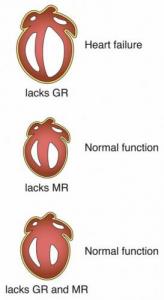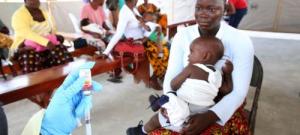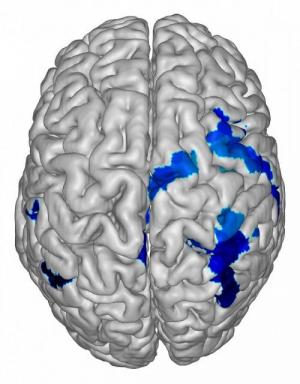Health
Stress, overtime, disease, contribute to 2.8 million workers’ deaths per year, reports UN labour agency

- Read more
- 411 reads
WHO releases first guideline on digital health interventions
WHO released new recommendations on 10 ways that countries can use digital health technology, accessible via mobile phones, tablets and computers, to improve people’s health and essential services.
- Read more
- 362 reads
Gene therapy restores immunity in infants with rare immunodeficiency disease

A baby’s foot and leg.
- Read more
- 365 reads
NIH BRAIN Initiative tool may transform how scientists study brain structure and function
Researchers have developed a high-tech support system that can keep a large mammalian brain from rapidly decomposing in the hours after death, enabling study of certain molecular and cellular functions. With funding through the National Institutes of Health BRAIN Initiative, researchers developed a way to deliver an artificial blood supply to the isolated postmortem brain of a pig, preventing the degradation that would otherwise destroy many cellular and molecular functions and render it unsuitable for study. Importantly, although the researchers saw some preservation of flow through blood vessels and energy use, there was no higher level functional activity in the brain circuits.
- Read more
- 361 reads
Healthy hearts need two proteins working together

Without the glucocorticoid receptor (GR), the mouse heart is enlarged, and the animal eventually has heart failure (top). However, a heart that lacks the mineralocorticoid receptor (MR)(middle) or both receptors (bottom) functions normally.
- Read more
- 326 reads
‘A global measles crisis’ is well underway, UN agency chiefs warn

Nurse at Redemption Hospital in Monrovia, Liberia, prepares to vaccinate children.
- Read more
- 480 reads
At WHO Forum on Medicines, countries and civil society push for greater transparency and fairer prices
At a global forum on fair pricing and access to medicines, delegates from governments and civil society organizations called for greater transparency around the cost of research and development as well as production of medicines, to allow buyers to negotiate more affordable prices.
- Read more
- 306 reads
Want to learn a new skill? Take some short breaks

In a study of healthy volunteers, NIH researchers found that taking short breaks, early and often, may help our brains learn new skills.
- Read more
- 337 reads
Greater transparency, fairer prices for medicines ‘a global human rights issue’, says UN health agency

Raghad who lives in a refugee camp in Jordan, suffers from type 1 diabetes and requires daily administration of insulin, but finds it hard to keep the insulin cool in the summer with limited electricity in the camp. She exercises to stay healthy.
- Read more
- 380 reads
Ketamine reverses neural changes underlying depression-related behaviors in mice
Researchers have identified ketamine-induced brain-related changes that are responsible for maintaining the remission of behaviors related to depression in mice — findings that may help researchers develop interventions that promote lasting remission of depression in humans.
- Read more
- 351 reads
Human Rights
Fostering a More Humane World: The 28th Eurasian Economic Summi

Conscience, Hope, and Action: Keys to Global Peace and Sustainability

Ringing FOWPAL’s Peace Bell for the World:Nobel Peace Prize Laureates’ Visions and Actions

Protecting the World’s Cultural Diversity for a Sustainable Future

Puppet Show I International Friendship Day 2020

